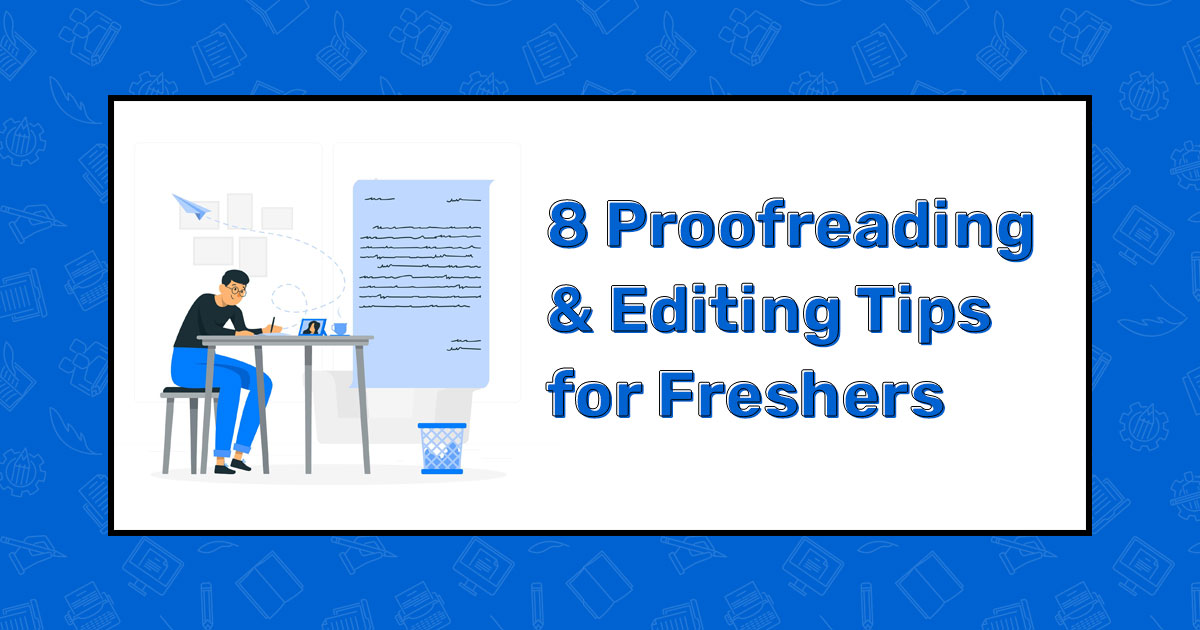As a fresher, you’re not only learning to consume loads of new information but also crafting your writing skills.
Academic style is demanding of excellent grammar and logical flow. There is a lot to learn and improve to become a great writer.
Apart from enhancing your vocabulary and knowledge, you’ll need to polish your proofreading and editing skills. Do not dismiss the importance of working on your essay after it has been written.
Get straight As in your first year at uni already by applying these eight proofreading and editing tips to your writing.
Read Aloud
As strange as it might sound, reading aloud helps you better grasp your writing. You might find out that a sentence does not sound exactly as intended.
Professional essay writers from essay service online by EssayHub check the quality of their essay for sale by reading it aloud. This way, you’re putting yourself in the reader’s shoes and getting a different perspective on the text.
Mind Tricky Words
Certain words get mixed up in the process of writing. Beware of the tricky spelling of words that sound alike, for example:
● they’re (they are)/their/there;
● you’re/your;
● it’s (it is)/its;
● effect/affect;
● accept/except;
● leave/live.
Do not forget about words that are exceptions to the regular rules. For example, the multiple for “phenomenon” is “phenomena.” Always check the spelling of any word you’re not sure about. Attentiveness to detail separates a good writer from a great one.
Check if Your Text Matches the Required Style
Pay attention to the specific writing style. Do you need to use British or American spelling? Are you required to use the Oxford comma? Writing “favour” instead of “favor” is not grammatically incorrect. Still, you might lose points for not following the guidelines.
There are a lot of peculiarities of academic writing you need to mind. For once, avoid rhetorical questions, colloquialisms, and metaphorical language.
Besides, there are constant updates on the formatting styles to keep in mind. Entrust your essay to professionals approved by NoCramming to ensure such details are covered. And get the best grade possible.
Run Your Text for Typos via Online Services
Another useful tip for proofreading and editing is to use computational linguistics to your advantage. Many free online services help identify typos and correct your spelling.
You’ll save a lot of time by running your text through one of these. However, do not rely on them to spot everything. Use it as additional help and not the only tool for proofreading and editing. There is so much a machine can do.
Refine Your Thesis Statement
The most important part of the majority of uni assignments is your thesis statement. This is the main argument on which to base your essay. Ideally, this is a sentence that has to explain to the reader what your text is about.
Therefore, edit your thesis statement after you’ve laid out all your paragraphs. Make sure it conveys the message you intended and sets the right tone. Check that it aligns with the requirements for a strong thesis statement and proofread it extra carefully.
Pay Attention to the Structure
After you edit your thesis statement, check the overall structure of the essay. Are the paragraphs evenly spaced? Does each of the paragraphs have a clear and cohesive message? Do they all serve to prove your thesis?
Edit the structure of your text accordingly, and do not forget to take care of the visual part of the essay (margins, highlights, and intervals).
Double-Check Citations
Spend extra time editing your citations in line with the required formatting style. It is easy to miss a comma or the number of pages. These are tiny details that can lower your grade if omitted. It would be a bummer to get less than you could for splendidly written work.
Pay attention to citing everything that is not your original thought. You would not want to be accused of plagiarism for just forgetting to put in an in-text citation. Edit your citations right away and check them all in the end.
Set Time Aside for Editing and Proofreading
Remember that you need focus and concentration to edit and proofread your text. Do not expect your brain to be attentive to details after finishing a ten-page essay at 3 am. Plan your time to edit and proofread your essay the next day.
At the very least, count in extra time for editing and proofreading in the overall writing process. Do take a short break after finishing writing. Dedicate some time to set yourself into the reader’s mindset and look at the essay as someone else’s text.
Summing Up
There you have it. Read your text aloud, pay attention to tricky and commonly misspelled words, and be cautious of specific academic writing style guidelines.
Run your text through an app to check typos, craft your thesis statement and work on your overall structure and citations, and have enough time to edit and proofread in the first place. Good luck!


